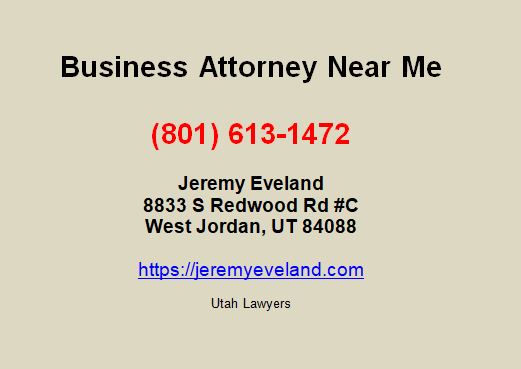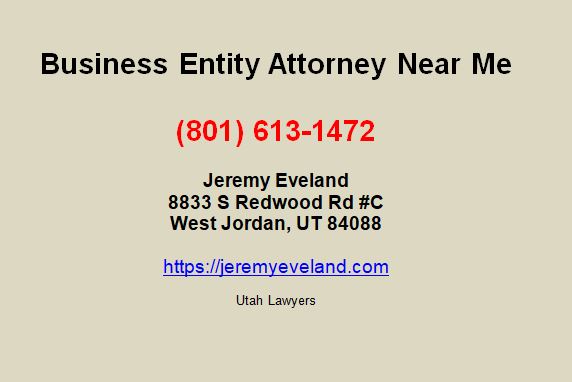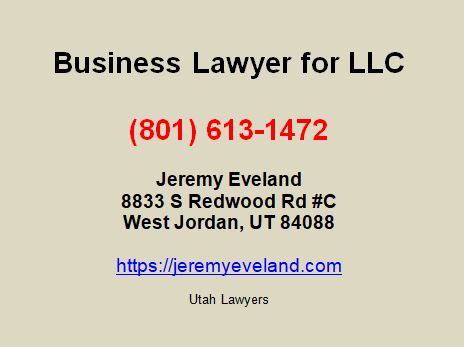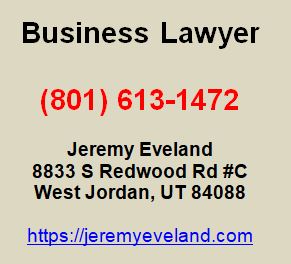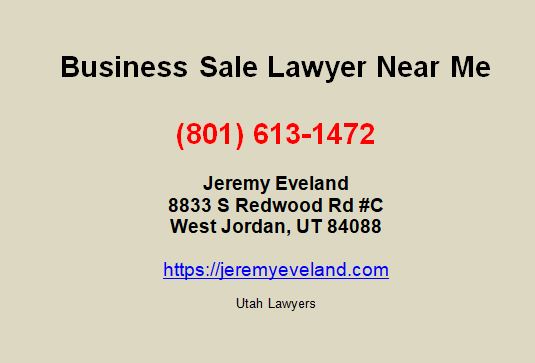Nevada Business Lawyer
You're considering launching a business in Nevada, and you know that maneuvering the state's complex laws and regulations can be overwhelming. As you start to build your venture, you'll need to make key decisions that can have a lasting impact on your company's success. A Nevada business lawyer can provide essential guidance on everything from choosing the right business structure to negotiating contracts. But what specific benefits can you expect from hiring an attorney, and how do you find the right one for your unique needs?
Key Takeaways
• A Nevada business lawyer can provide expert guidance on complex business laws and regulations in the state.
• They can help navigate business formation and structure, including selecting the right entity type and obtaining necessary licenses.
• A business lawyer in Nevada can assist with contract negotiation and review, ensuring key provisions protect business interests.
• They can also aid in resolving business disputes through alternative methods, such as mediation and arbitration, or litigation.
• Regular consultation with a Nevada business lawyer helps ensure compliance with state and federal laws, minimizing the risk of penalties.
Benefits of Hiring a Business Lawyer
By hiring a Nevada business lawyer, you gain access to expert guidance and counsel that can help you navigate complex business laws and regulations, minimize risks, and make informed decisions.
You'll be able to tap into their in-depth knowledge of Nevada's specific business compliance requirements, ensuring your company remains compliant and avoids costly fines or penalties. A skilled business lawyer will help you develop a sound legal strategy, tailored to your business's unique needs and goals.
With a Nevada business lawyer on your side, you'll be well-equipped to handle any legal challenges that arise, from contract disputes to regulatory issues.
They'll help you stay up-to-date on changes in Nevada business laws and regulations, ensuring you're always in compliance. By leveraging their expertise, you'll be able to focus on running your business, confident that your legal affairs are in good hands.
Business Formation and Setup Options
When setting up your Nevada business, you'll need to choose a business structure that suits your needs, such as a corporation, limited liability company (LLC), or partnership.
You'll also need to navigate the entity formation process, which involves filing necessary documents with the state and obtaining required licenses and permits.
As you consider your options, you'll want to take into account startup tax considerations to guarantee you're taking advantage of available tax benefits and minimizing your liability.
Business Structure Options
Forming a business in Nevada requires selecting a suitable structure from various options, including sole proprietorships, partnerships, limited liability companies (LLCs), and corporations, each offering distinct advantages and disadvantages. You'll want to take into account factors such as liability protection, tax implications, and corporate compliance requirements when making your decision.
When evaluating business structure options, reflect on the following key aspects:
-
Liability Protection: Will your personal assets be protected in case of business debts or lawsuits? LLCs and corporations offer liability protection, while sole proprietorships and partnerships do not.
-
Tax Implications: How will your business income be taxed? Sole proprietorships and partnerships are pass-through entities, while LLCs and corporations may be subject to double taxation.
-
Corporate Compliance: What ongoing filing and reporting requirements will you need to meet? Corporations and LLCs are subject to more stringent corporate compliance requirements than sole proprietorships and partnerships.
Ultimately, the business structure you choose will depend on your unique circumstances, goals, and priorities. It's crucial to consult with a qualified Nevada business lawyer to determine the best structure for your business.
Entity Formation Process
How do you formally establish a business entity in Nevada, and what steps must you take to guarantee compliance with state regulations?
To start, you'll need to choose from the various entity types available in Nevada, such as corporations, limited liability companies (LLCs), and partnerships. Each entity type has its own advantages and disadvantages, so it's important to consult with a Nevada business lawyer to determine which one best suits your business needs.
Once you've selected an entity type, you can begin the incorporation process. This typically involves filing the necessary documents with the Nevada Secretary of State's office, such as articles of incorporation or articles of organization. You'll also need to obtain any necessary business licenses and permits, and register for taxes with the state and federal government.
To ensure adherence to state regulations, you'll need to draft bylaws or an operating agreement, depending on your entity type. These documents outline the governance structure and operational procedures for your business.
Startup Tax Considerations
As you establish your business in Nevada, understanding the tax implications of various formation and setup options is crucial to minimize liabilities and maximize benefits.
You'll want to reflect on how different structures, such as sole proprietorship, partnership, or corporation, impact your tax obligations. A Nevada business lawyer can help you navigate these complexities.
When it comes to startup tax considerations, you should be aware of the following key points:
-
Tax Incentives: Nevada offers various tax incentives to encourage business growth, such as the Nevada New Markets Tax Credit program.
-
Startup Deductions: Familiarize yourself with deductions available to startups, including research and development expenses, business use of your home, and start-up costs.
-
Business Tax Registration: Verify you register your business with the Nevada Department of Taxation and obtain necessary licenses and permits to avoid penalties.
Contract Negotiation and Review
As you navigate contract negotiation and review, you'll want to pay close attention to key contract provisions that can impact your business's success.
You'll need to carefully consider terms such as payment structures, liability clauses, and termination conditions to guarantee they align with your company's goals and interests.
Key Contract Provisions
When negotiating or reviewing a contract, identifying and understanding key contract provisions is essential to protect your interests and guarantee that the agreement aligns with your business goals and objectives.
As a Nevada business owner, you'll want to ascertain that your contracts are thorough and clear to avoid potential disputes or contract breaches. In the event of a contract breach, having well-defined provisions can aid in contract enforcement and minimize potential losses.
Here are three key contract provisions to focus on:
-
Scope of Work: Clearly outline the responsibilities and obligations of all parties involved, including specific tasks, timelines, and deliverables.
-
Payment Terms: Define payment schedules, amounts, and methods to prevent misunderstandings and ascertain timely payments.
-
Termination and Dispute Resolution: Establish procedures for terminating the contract and resolving disputes, including mediation, arbitration, or litigation.
Negotiation Strategy Tips
Negotiating a contract requires a well-planned strategy that prioritizes your business objectives, protects your interests, and adapts to the dynamics of the negotiation process.
You'll need to employ effective negotiation tactics to achieve your goals. Start by clearly defining your objectives and identifying potential areas of contention. This will help you focus your efforts and make strategic decisions during the negotiation.
Effective communication is essential in contract negotiation. You must articulate your needs and concerns clearly, while also listening actively to the other party's perspective. This will help build trust and facilitate creative problem-solving.
Be open to compromise, but don't concede on critical issues. Instead, seek mutually beneficial solutions that satisfy both parties' interests. Remember to maintain a professional demeanor, even in the face of disagreement.
Resolving Business Disputes and Litigation
Disputes can arise in even the most well-managed businesses, and it's essential that you understand the options available for resolving them in a timely and cost-effective manner. When you're facing a dispute, you'll want to evaluate alternative dispute resolution methods, such as mediation techniques and arbitration processes, before heading to court.
Here are three options you should evaluate:
-
Mediation: A neutral third-party facilitates a discussion between you and the other party to reach a mutually acceptable solution.
-
Arbitration: A neutral third-party makes a binding decision after hearing evidence and arguments from both sides.
-
Litigation: Taking your dispute to court, where a judge or jury will make a decision.
You'll want to consult with a Nevada business lawyer to determine the best approach for your specific situation. They can help you navigate the process and represent your interests.
Nevada Business Laws and Regulations
Numerous state and federal laws govern businesses in Nevada, and it's your responsibility as a business owner to comply with these regulations to avoid costly fines, penalties, and reputational damage.
You must familiarize yourself with Nevada's licensing requirements, which vary depending on the type of business you operate. For instance, you may need to obtain a general business license, as well as specialized licenses or permits specific to your industry.
Additionally, you must comply with Nevada's employment regulations, which cover matters such as minimum wage, overtime, and workers' compensation. You're also subject to federal laws, including the Fair Labor Standards Act and the Americans with Disabilities Act.
Failure to comply with these regulations can result in legal action, fines, and damage to your business's reputation. To guarantee compliance, it's essential to regularly review and update your business practices and policies to reflect changes in Nevada's business laws and regulations.
Finding the Right Business Lawyer
When steering through the complexities of Nevada's business laws and regulations, you need to secure the expertise of a seasoned business lawyer who can provide counsel tailored to your specific business needs.
In your search, consider the following key factors to guarantee you find the right business lawyer for your organization:
-
Define your legal needs: Determine the specific areas of law that your business requires assistance with, such as corporate law, intellectual property, or employment law.
-
Evaluate their experience and qualifications: Look for a lawyer with extensive experience in handling business law cases and a proven track record of success in their specific legal specialties.
-
Understand their fee structure: Clarify their attorney fees, payment terms, and billing procedures to assure you're comfortable with the arrangement and can budget accordingly.
Frequently Asked Questions
How Much Does a Nevada Business Lawyer Typically Charge per Hour?
You're likely wondering about the hourly charge of a business lawyer.
Typically, you'll encounter various legal fee structures, with hourly billing rates being the most common. Expect to pay anywhere from $200 to over $600 per hour, depending on the lawyer's experience, location, and type of law practiced.
You should also consider asking about package deals or flat fees for specific services, as these can be more cost-effective.
Can I Use an Out-Of-State Lawyer for My Nevada-Based Business?
You're drowning in a sea of legalese, frantically searching for a lifeline – but can an out-of-state lawyer be your savior?
Technically, yes, you can use an out-of-state lawyer, but beware: they may not be familiar with Nevada's unique laws.
Out-of-state representation can be a gamble, as the lawyer may not be admitted to practice in Nevada's legal jurisdiction.
Tread carefully, or you may find yourself lost in a labyrinth of jurisdictional issues.
What Is the Difference Between a Business Lawyer and a Corporate Lawyer?
When considering legal counsel for your business, you may wonder about the difference between a business lawyer and a corporate lawyer.
While often used interchangeably, the distinction lies in their focus areas.
A business lawyer advises on various business structures and guarantees legal compliance across all aspects of your business.
A corporate lawyer, on the other hand, typically focuses on more complex corporate issues, such as mergers and acquisitions.
Can a Business Lawyer Help With My Company's Intellectual Property Needs?
You're safeguarding your company's innovative edge, just as Thomas Edison protected his groundbreaking light bulb design.
A business lawyer can indeed help with your intellectual property needs. They can guide you through trademark registration, ensuring your brand's distinctiveness is secured.
Additionally, they can assist with copyright protection, shielding your original works from unauthorized use.
How Often Should I Meet With My Business Lawyer for Routine Matters?
You should meet with your business lawyer regularly for routine consultations to guarantee your company remains compliant with relevant laws and regulations.
Schedule quarterly or bi-annual legal check-ins to review contracts, discuss potential disputes, and address any ongoing concerns.
Don't wait for issues to arise; proactive communication helps prevent costly mistakes.
Areas We Serve in Nevada
We serve individuals and businesses in the following locations:
Alamo Nevada
Amargosa Valley Nevada
Austin Nevada
Baker Nevada
Battle Mountain Nevada
Beatty Nevada
Beaverdam Nevada
Bennett Springs Nevada
Blue Diamond Nevada
Boulder City Nevada
Bunkerville Nevada
Cal-Nev-Ari Nevada
Caliente Nevada
Carlin Nevada
Carson City Nevada
Carter Springs Nevada
Cold Springs Nevada
Crescent Valley Nevada
Crystal Bay Nevada
Dayton Nevada
Denio Nevada
Double Spring Nevada
Dry Valley Nevada
Dyer Nevada
East Valley Nevada
Elko City Nevada
Ely City Nevada
Empire Nevada
Enterprise Nevada
Eureka Nevada
Fallon Station Nevada
Fallon Nevada
Fernley Nevada
Fish Springs Nevada
Fort McDermitt Nevada
Gabbs Nevada
Gardnerville Nevada
Gardnerville Ranchos Nevada
Genoa Nevada
Gerlach Nevada
Glenbrook Nevada
Golconda Nevada
Golden Valley Nevada
Goldfield Nevada
Goodsprings Nevada
Grass Valley Nevada
Hawthorne Nevada
Henderson Nevada
Hiko Nevada
Humboldt River Ranch Nevada
Imlay Nevada
Incline Village Nevada
Indian Hills Nevada
Indian Springs Nevada
Jackpot Nevada
Johnson Lane Nevada
Kingsbury Nevada
Kingston Nevada
Lakeridge Nevada
Lamoille Nevada
Las Vegas Nevada
Laughlin Nevada
Lemmon Valley Nevada
Logan Creek Nevada
Lovelock Nevada
Lund Nevada
McDermitt Nevada
McGill Nevada
Mesquite Nevada
Mina Nevada
Minden Nevada
Moapa Town Nevada
Moapa Valley Nevada
Mogul Nevada
Montello Nevada
Mount Charleston Nevada
Mount Wilson Nevada
Mountain City Nevada
Nellis AFB Nevada
Nelson Nevada
Nixon Nevada
North Las Vegas Nevada
Oasis Nevada
Orovada Nevada
Osino Nevada
Owyhee Nevada
Pahrump Nevada
Panaca Nevada
Paradise Nevada
Paradise Valley Nevada
Pioche Nevada
Preston Nevada
Rachel Nevada
Reno Nevada
Round Hill Village Nevada
Ruhenstroth Nevada
Ruth Nevada
Sandy Valley Nevada
Schurz Nevada
Searchlight Nevada
Silver City Nevada
Silver Peak Nevada
Silver Springs Nevada
Skyland Nevada
Smith Valley Nevada
Spanish Springs Nevada
Sparks Nevada
Spring Creek Nevada
Spring Valley Nevada
Stagecoach Nevada
Stateline Nevada
Summerlin South Nevada
Sun Valley Nevada
Sunrise Manor Nevada
Sutcliffe Nevada
Tonopah Nevada
Topaz Lake Nevada
Topaz Ranch Estates Nevada
Unionville Nevada
Ursine Nevada
Valmy Nevada
Verdi Nevada
Virginia City Nevada
Wadsworth Nevada
Walker Lake Nevada
Washoe Valley Nevada
Wells Nevada
West Wendover Nevada
Whitney Nevada
Winchester Nevada
Winnemucca Nevada
Yerington Nevada
Zephyr Cove Nevada
Nevada Lawyer Consultation
When you need help from an Attorney in Nevada, call Jeremy D. Eveland, MBA, JD (702) 302-4757 for a consultation.
Jeremy Eveland
17 North State Street
Lindon UT 84042
(801) 613-1472
Related Posts
Preventing Cybersecurity Breaches
Mastering Business Law: Key Essentials For Success
Estate Planning For Protecting Family Privacy
Estate Planning For Estate Distribution Disputes







